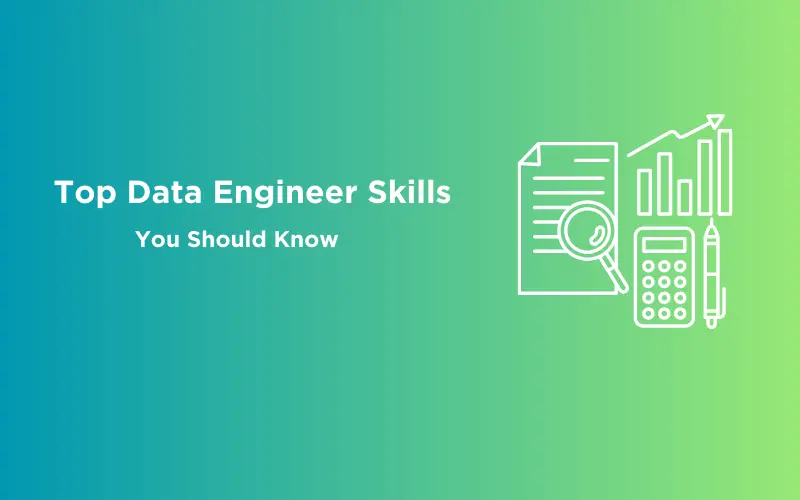
Top 9 Data Engineer Skills You Should Know
Nov 05, 2024 4 Min Read 3586 Views
(Last Updated)
The whole world is technology-driven and thus data has been playing a vital role in recent years. And that’s where data engineers come in demand. They play a great role in collecting, storing, and transforming data into a format that could be used by businesses to elevate. There comes a need for skills required to become a data engineer.
In this blog, we’ll be focusing on some of the data engineer skills you’ll be required to become one. You must learn all these skills one-by-one and get into this incredible career journey. This blog covers everything you should know whether you’re a beginner or an experienced professional. Let’s get started:
Table of contents
- Top 9 Data Engineer Skills You Must Know
- 1) Programming Languages
- 2) SQL Databases
- 3) NoSQL Databases
- 4) Data Modeling Techniques
- 5) ETL (Extract, Transform, Load)
- 6) Big Data Technologies
- 7) Cloud Computing
- 8) Data Visualization
- 9) Data Quality Assurance
- Salary of a Data Engineer in India
- Conclusion
- FAQ
- Q1: What is the role of a data engineer?
- Q2: What are the essential skills of a data engineer?
- Q3: How much does a data engineer earn in India?
- Q4: Is a degree in computer science necessary to become a data engineer?
Top 9 Data Engineer Skills You Must Know
Let’s read about some of the top data engineer skills you must definitely know in order to build a successful year ahead:
1) Programming Languages

The very first data engineer skill is learning programming languages. You must be proficient in any one programming language in order to manipulate and process data efficiently. Out of many programming languages, Python is the most demanding programming language for data engineering due to its extensive libraries and versatile nature.
Python is used in various disciplines of data engineering such as to automate tasks and data pipelines, and clean and analyze data. You should be proficient in Python language, learn through the best courses on Python, and accelerate your career in data engineering. Learn by having hands-on experience by working on data manipulation and visualization.
Before we move to the next part, you should have a deeper knowledge of data engineering concepts. You can consider enrolling yourself in GUVI’s Big Data and Cloud Analytics Course, which lets you gain practical experience by developing real-world projects and covers technologies including data cleaning, data visualization, Infrastructure as code, database, shell script, orchestration, cloud services, and many more.
Additionally, if you would like to explore Data Engineering and Big Data through a Self-paced course, try GUVI’s Data Engineering and Big Data self-paced course.
2) SQL Databases
Structure Query Language (SQL) is the next important data engineer skill that you must know. SQL is used to store, retrieve, and manipulate structured data. Data engineers must be very proficient in writing optimized SQL queries to extract and transform data efficiently.
You can enroll in online courses and grasp the concepts clearly if you’re a beginner. These courses cover topics such as data modeling, database design, and advanced SQL querying techniques. Additionally, practicing with real-world datasets and participating in coding challenges can help you strengthen your SQL skills.
3) NoSQL Databases
In addition to SQL databases, data engineers should also be familiar with NoSQL databases. NoSQL databases, such as MongoDB and Cassandra, are designed to handle unstructured and semi-structured data. They are highly scalable and provide flexible data models, making them suitable for handling big data and real-time applications.
To gain expertise in NoSQL databases, explore online resources that offer tutorials and hands-on exercises. Learn about different types of NoSQL databases, their use cases, and how to design and manage data models in these databases.
4) Data Modeling Techniques
Data modeling is a crucial skill for data engineers as it involves designing and structuring databases and data warehouses to ensure optimal performance and scalability. Data engineers must understand various data modeling techniques, such as entity-relationship modeling and dimensional modeling, to create efficient data models.
To learn data modeling techniques, consider taking online courses or reading books that cover topics such as database design, normalization, and data modeling best practices. Hands-on projects and case studies can also provide valuable experience in applying data modeling techniques to real-world scenarios.
5) ETL (Extract, Transform, Load)
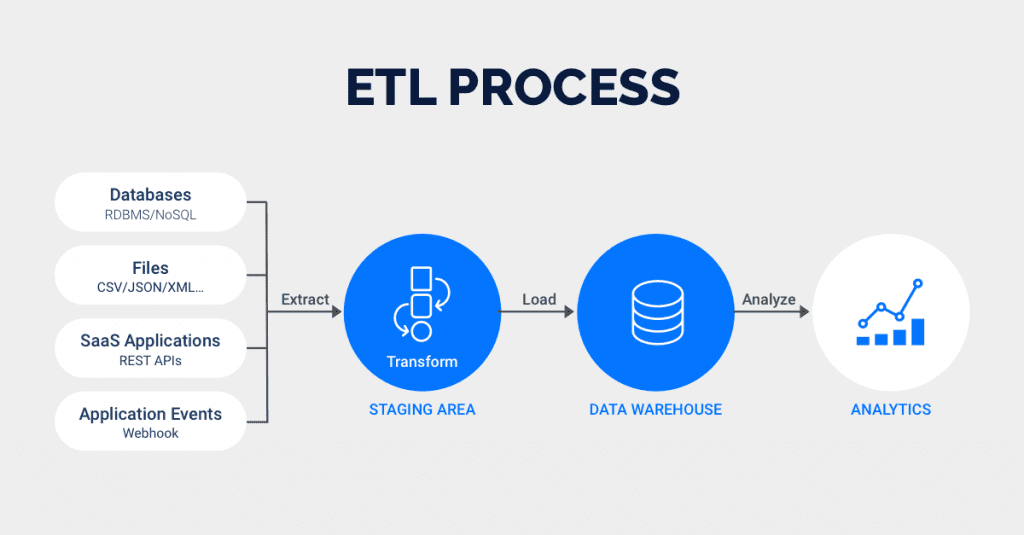
ETL (Extract, Transform, Load) is a process used by data engineers to collect data from various sources, transform it into a suitable format, and load it into a data warehouse or database. Data engineers should have a deep understanding of ETL principles, tools, and frameworks to ensure efficient data integration and processing.
Several ETL tools and frameworks are available, such as Apache Airflow, Informatica, and Talend. Familiarize yourself with these tools and learn how to design and implement ETL pipelines to extract, transform, and load data effectively. Additionally, understanding data integration concepts and best practices can enhance your ETL skills.
6) Big Data Technologies
As the volume and variety of data continue to grow, data engineers must be proficient in handling big data. Big data technologies, such as Apache Hadoop, Apache Spark, and Apache Kafka, enable data engineers to process and analyze large datasets efficiently.
To gain expertise in big data technologies, explore online courses or tutorials that cover topics such as Hadoop distributed file systems, Spark data processing, and Kafka streaming. Hands-on experience with these technologies through projects or internships can further enhance your skills.
7) Cloud Computing
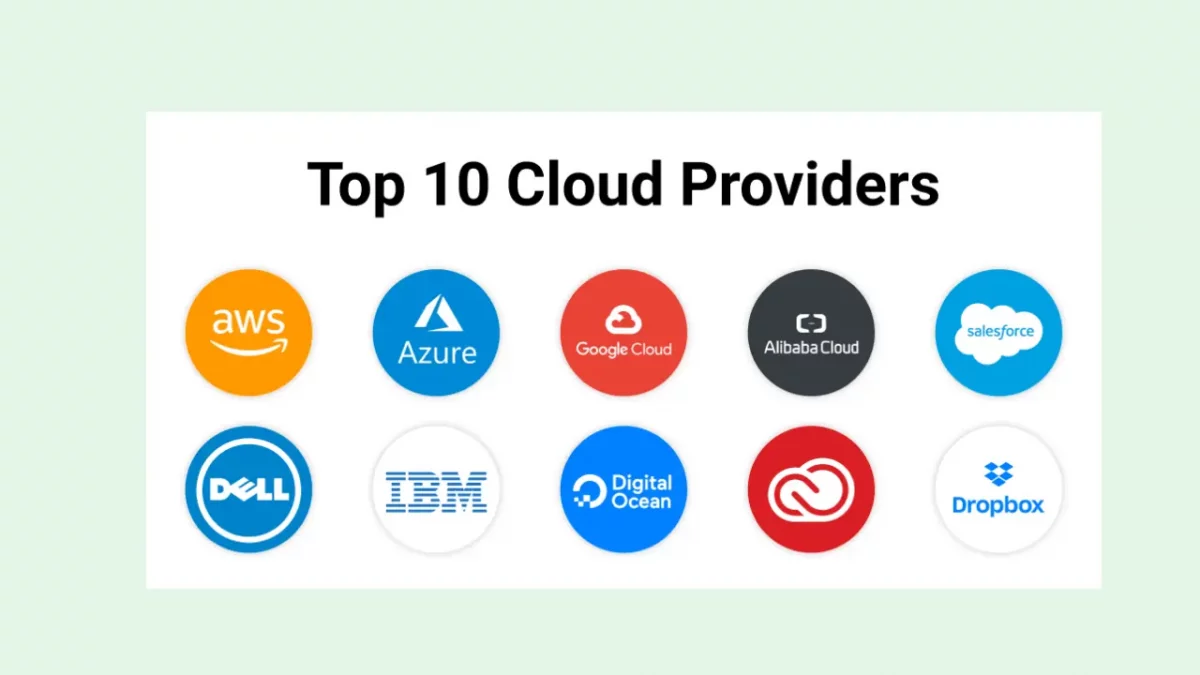
Cloud computing has revolutionized the way data is stored, processed, and accessed. Data engineers should have a solid understanding of cloud computing platforms, such as Amazon Web Services (AWS), Microsoft Azure, and Google Cloud Platform (GCP). These platforms provide scalable and cost-effective solutions for data storage, processing, and analytics.
To build your cloud computing skills, consider obtaining certifications in AWS, Azure, or GCP. These certifications validate your knowledge and expertise in cloud computing and can make you more marketable in the job market. Additionally, hands-on experience with cloud-based data engineering projects can provide valuable practical knowledge.
8) Data Visualization
Data visualization plays a crucial role in data engineering as it allows data engineers to communicate insights and trends effectively. Data engineers should be familiar with visualization tools like Tableau, Power BI, and matplotlib to create visually appealing and informative dashboards and reports.
To improve your data visualization skills, explore online courses or tutorials that cover topics such as data visualization principles, best practices, and tools. Practice creating visualizations with real datasets and experiment with different chart types and interactive features.
9) Data Quality Assurance
Data quality is essential for accurate and reliable data analysis. Data engineers should have a strong understanding of data quality assurance techniques to ensure data integrity and consistency. They should be proficient in data profiling, data cleansing, and data validation processes.
To enhance your data quality assurance skills, explore online resources that cover topics such as data quality frameworks, data cleansing techniques, and data validation tools. Participating in data quality improvement projects and working with real-world datasets can provide valuable hands-on experience.
This Complete Guide on Data Engineering is definitely going to help you clear all the concepts and lead you to a successful journey ahead.
Salary of a Data Engineer in India

In India, the salary of a data engineer can vary depending on factors such as experience, location, and company size. According to Glassdoor, the average salary of a data engineer in India is around INR 10-15 lakhs per annum. However, salaries can range from INR 6 lakhs to INR 30 lakhs or more, depending on the individual’s skills, expertise, and the company’s compensation policies.
It’s important to note that these figures are approximate and can vary based on various factors. It’s recommended to research salary trends in your specific location and industry to get a more accurate understanding of the salary range for data engineers.
Kickstart your career by enrolling in GUVI’s Big Data and Cloud Analytics Course where you will master technologies like data cleaning, data visualization, Infrastructure as code, database, shell script, orchestration, and cloud services, and build interesting real-life cloud computing projects.
Alternatively, if you want to explore Data Engineering and Big Data through a Self-paced course, try GUVI’s Data Engineering and Big Data Self-Paced course.
Conclusion
Becoming a data engineer requires a combination of technical skills, practical experience, and continuous learning. The data engineer skill outlined in this guide provides a solid foundation for aspiring data engineers. However, it’s important to stay updated with emerging technologies and industry trends to remain competitive in the field.
By continuously developing and honing your skills in programming languages, databases, data modeling, ETL, big data technologies, cloud computing, data visualization, data quality assurance, and staying informed about salary trends, you can position yourself as a valuable asset in the data engineering field.
Remember, pursuing a career in data engineering is a journey that requires dedication, continuous learning, and a passion for working with data. Embrace the challenges, stay curious, and expand your skill set to thrive in this ever-evolving field.
FAQ
Q1: What is the role of a data engineer?
Ans: The role of a data engineer is to collect, store, process, and transform data into a format that can be easily analyzed and utilized by data scientists and business analysts. They are responsible for building and maintaining data pipelines, managing databases and data warehouses, and ensuring data quality and integrity.
Q2: What are the essential skills of a data engineer?
Ans: The essential skills for a data engineer include proficiency in programming languages such as Python, SQL databases, NoSQL databases, data modeling techniques, ETL (Extract, Transform, Load) processes, big data technologies, cloud computing, data visualization, and data quality assurance.
Q3: How much does a data engineer earn in India?
Ans: The salary of a data engineer in India can vary depending on factors such as experience, location, and company size. On average, data engineers in India earn around INR 10-15 lakhs per annum. However, salaries can range from INR 6 lakhs to INR 30 lakhs or more, depending on individual skills and expertise.
Q4: Is a degree in computer science necessary to become a data engineer?
Ans: While a degree in computer science or a related field can be advantageous, it is not always a requirement to become a data engineer. Many data engineers have gained expertise through practical experience, online courses, and self-study. However, a strong technical foundation and knowledge of programming, databases, and data engineering concepts are essential for success in the field.















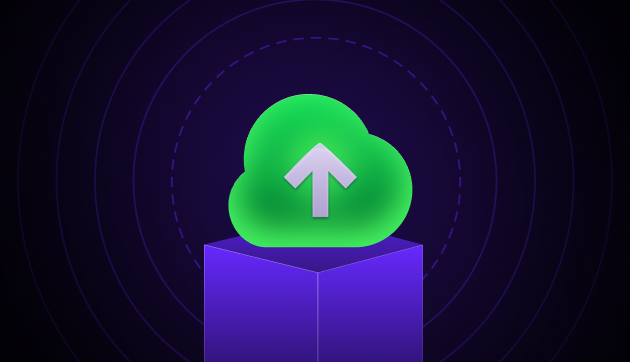

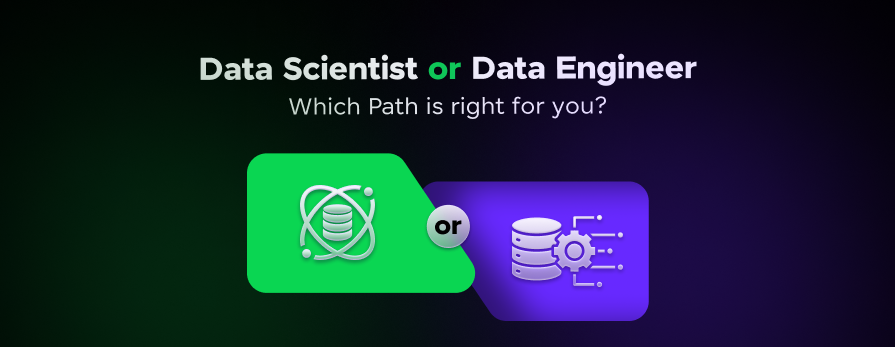
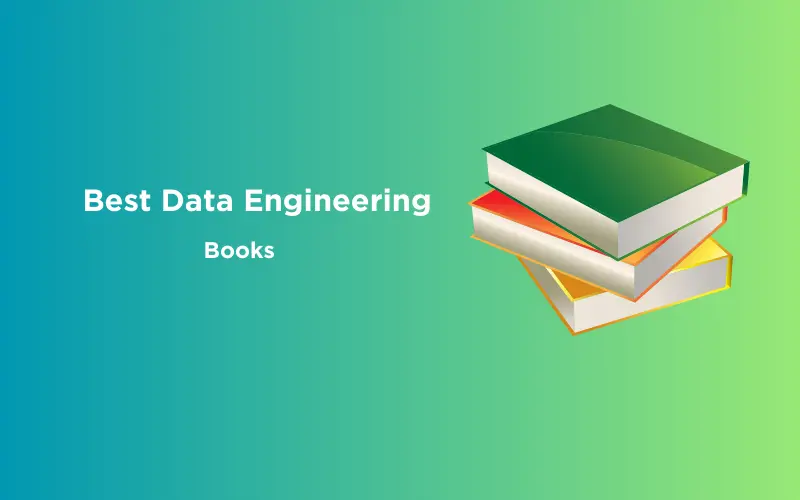

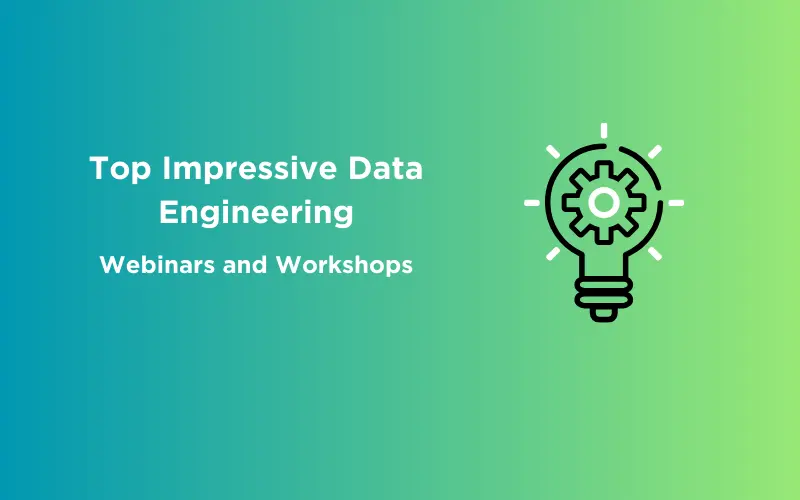



Did you enjoy this article?